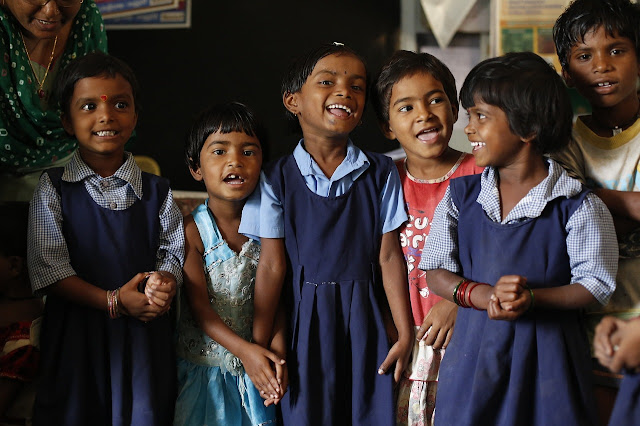Introduction:
Discover the key to unlocking the potential of education in India with this comprehensive guide. Explore the various aspects and challenges of the education system in one of the world's largest countries.
1. Evolution of Education in India over the Past 30 Years
The education landscape in India has undergone significant changes over the past three decades. With a growing emphasis on access to education for all, the government has implemented various policies and programs to increase enrollment and improve educational outcomes. The introduction of digital learning technologies, the expansion of vocational training opportunities, and the focus on quality education have all contributed to the evolution of the education system in India.
2. Key Milestones in the Development of Education in India
3. Government's Approach to Education in India over the Past 30 Years
The government's approach to education in India has evolved over the past three decades, with a greater focus on improving infrastructure, increasing teacher training, and enhancing curriculum standards. The introduction of schemes like Mid-Day Meal Program, Samagra Shiksha Abhiyan, and Digital India has aimed to bridge the gap in education access and quality across different regions of the country.
4. Role of Technology in Transforming Education in India
Technology has played a crucial role in transforming education in India, with the widespread adoption of digital learning platforms, online classrooms, and educational apps. The integration of technology in education has enhanced access to learning resources, improved teaching methods, and provided opportunities for personalized learning experiences for students across the country.
5. Evolution of Curriculum in Indian Schools and Universities
The curriculum in Indian schools and universities has evolved to meet the changing needs of the 21st-century workforce. There has been a shift towards skill-based education, interdisciplinary learning, and the inclusion of new subjects like coding, artificial intelligence, and environmental studies. The emphasis on holistic development and critical thinking skills has also influenced the curriculum design in educational institutions.
6. Major Challenges Facing Education in India Today
Despite significant progress, education in India still faces several challenges, including issues of access, quality, and equity. The digital divide, inadequate infrastructure, teacher shortages, and outdated curriculum are some of the key challenges that need to be addressed to ensure a more inclusive and effective education system in the country.
7. Quality of Education in India
Trends over Three Decades
The quality of education in India has shown improvement over the past three decades, with an increased focus on teacher training, curriculum reform, and assessment practices. However, challenges like learning outcomes, dropout rates, and disparities in access to quality education continue to persist and require concerted efforts to overcome.
8. Initiatives to Address Disparities in Education Access and Quality
Several initiatives have been launched to address disparities in education access and quality, including scholarships for marginalized communities, infrastructure development in remote areas, and teacher training programs. These initiatives aim to create a more equitable education system that provides opportunities for all students to succeed.
9. Changing Role of Teachers and Educators in India
The role of teachers and educators in India has evolved to encompass not just content delivery but also mentorship, facilitation of learning, and skill development. Teachers are now seen as key agents of change in the education system, shaping the future of students and contributing to the overall development of society.
10. Impact of Educational Reforms on the Educational Landscape in India
Educational reforms in India have had a significant impact on the educational landscape, leading to improvements in infrastructure, curriculum design, teacher training, and assessment practices. The focus on outcomes-based education, experiential learning, and digital literacy has transformed the way education is delivered and received in the country.
11. Focus on Vocational and Skill-Based Education in India
There has been a growing emphasis on vocational and skill-based education in India, with the recognition of the importance of practical skills and hands-on training for students. Initiatives like Skill India, National Skill Development Mission, and Pradhan Mantri Kaushal Vikas Yojana have aimed to enhance employability and entrepreneurship opportunities for the youth.
12. Trends and Developments in Higher Education in India
Higher education in India has witnessed several trends and developments, including the establishment of new universities, the introduction of interdisciplinary programs, and the emphasis on research and innovation. The focus on industry-academia collaboration, international partnerships, and quality assurance mechanisms has aimed to enhance the overall standard of higher education in the country.
13. Evolution of Perception of Education in India
The perception of education in India has evolved from being seen as a means to secure a job to being viewed as a tool for personal growth, social mobility, and national development. There is a greater recognition of the transformative power of education in shaping individuals and societies, leading to increased investment and prioritization of education in the country.
14. Factors Driving Innovation and Change in Education in India
Several factors have been driving innovation and change in education in India, including technological advancements, changing workforce demands, globalization, and policy reforms. The need for a more flexible, adaptive, and inclusive education system has led to the exploration of new pedagogical approaches, learning models, and assessment methods.
15. Unlocking the Full Potential of Education in India
To unlock the full potential of education in India, there is a need for continued investment in infrastructure, teacher training, curriculum reform, and assessment practices. Embracing innovation, promoting lifelong learning, and fostering a culture of curiosity and creativity are essential to ensure that education in India remains relevant, responsive, and empowering for all.
Conclusion:
In conclusion, "Unlocking the Potential: A Comprehensive Guide to Education in India" highlights the evolving landscape of education in the country over the past three decades. From addressing challenges to embracing innovation, the guide underscores the importance of investing in infrastructure, teacher training, and curriculum reform to ensure a more inclusive and effective education system. By recognizing the transformative power of education and fostering a culture of lifelong learning, India can unlock its full potential and empower individuals to thrive in a rapidly changing world.
Summary
Headline: "Unlocking the Potential: A Comprehensive Guide to Education in India" Summary: This article provides an overview of the evolution of education in India over the past 30 years, highlighting key milestones, changes in government approach, role of technology, curriculum updates, and challenges faced. It also discusses improvements in education quality, initiatives to address disparities, changes in teacher roles, educational reforms' impact, focus on vocational education, trends in higher education, changing perceptions of education, factors driving innovation, and recommendations for unlocking India's educational potential moving forward.













